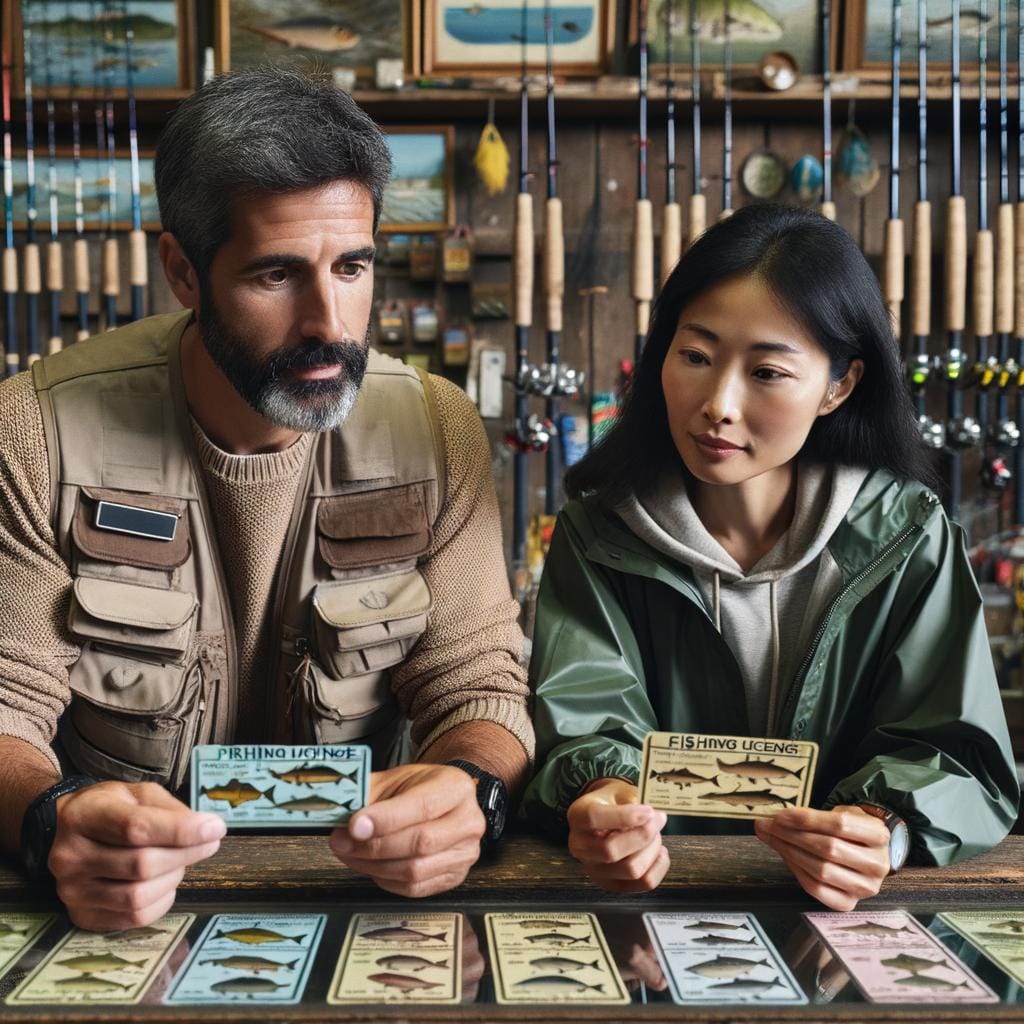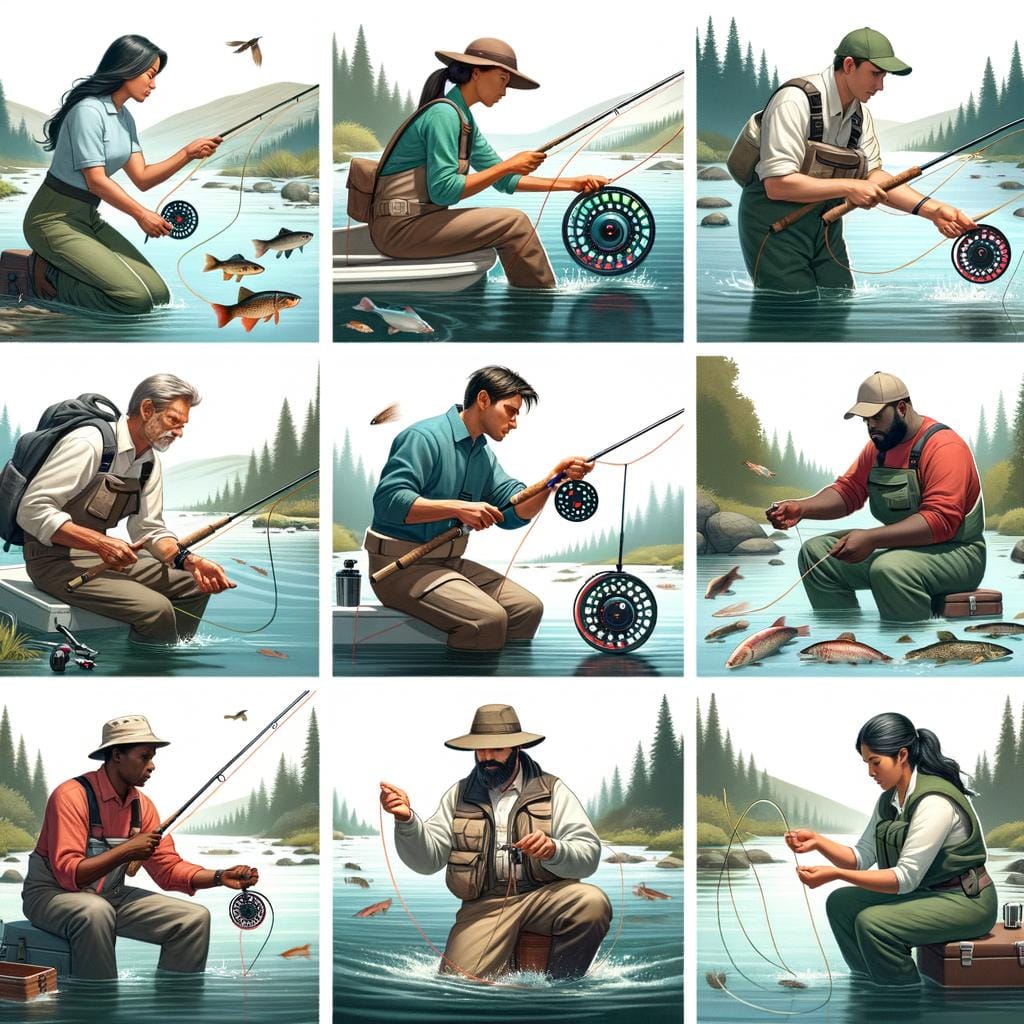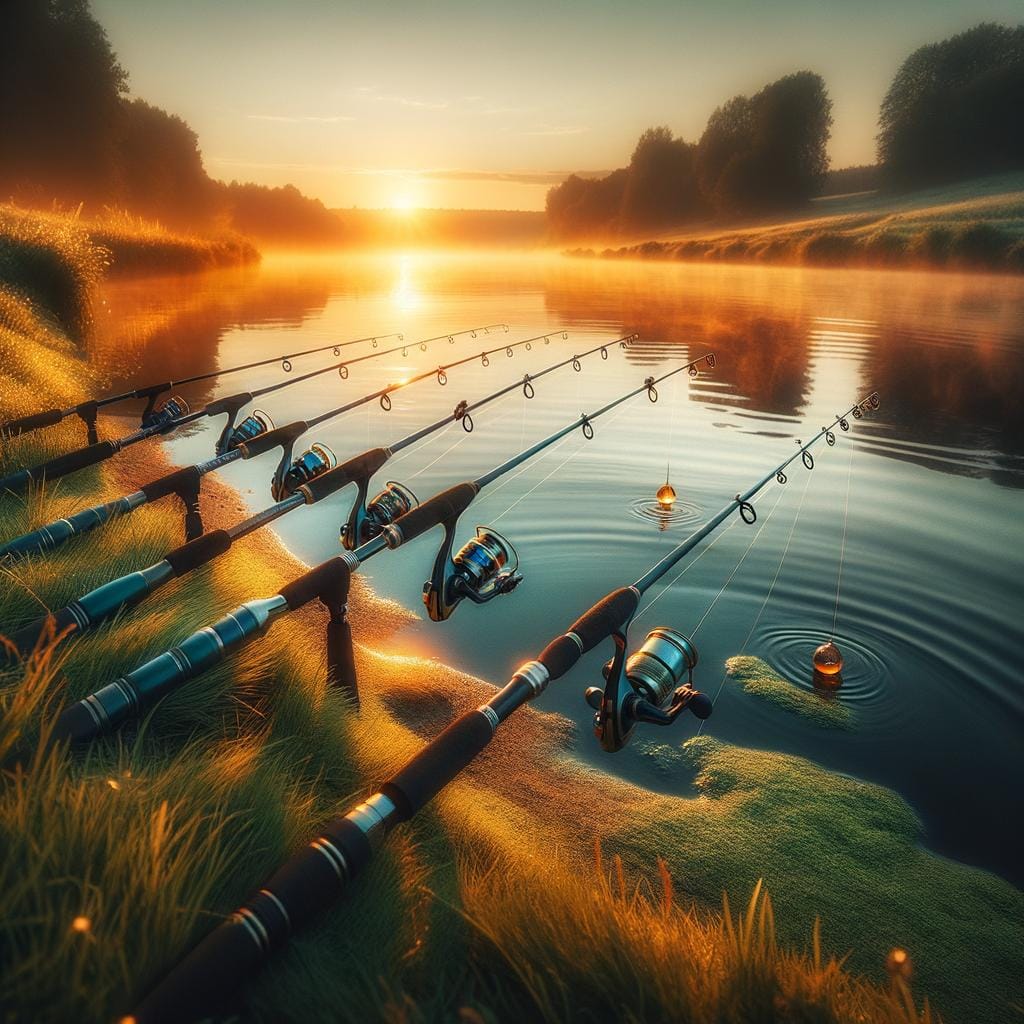Fishing licenses are essential for anyone looking to enjoy the sport of fishing while adhering to legal requirements. These permits not only enable anglers to legally fish in specific areas but also contribute to conservation efforts and maintaining sustainable fish populations. Understanding the significance of fishing licenses is key to promoting responsible fishing practices and respecting wildlife regulations.
For those new to the world of fishing, navigating the different types of fishing licenses available can be overwhelming. From freshwater permits to saltwater licenses, each option serves a specific purpose depending on the type of fishing activity one wishes to engage in. By breaking down the various types of fishing licenses, individuals can make informed decisions on which permit best suits their needs before hitting the waters.
Obtaining a fishing license is a straightforward process, but it is crucial for beginners to familiarize themselves with the steps involved. Whether purchasing online or in-person, acquiring a fishing license typically requires providing personal information and payment for the permit fees. By following a step-by-step guide, newcomers can ensure they are properly licensed and ready to enjoy their fishing adventures without any legal complications.
Types of Fishing Licenses
When it comes to fishing, having the right license is essential to ensure that you are fishing legally and responsibly. There are various types of fishing licenses available, each catering to different needs and preferences of anglers. Understanding the different options can help you choose the right license for your specific fishing activities.
Resident Fishing License
This type of fishing license is typically available to individuals who reside in the state where they plan to fish. The cost of a resident fishing license is usually lower than that of a non-resident license, making it an affordable option for locals who fish frequently in their home state.
Non-Resident Fishing License
Non-residents who wish to fish in a particular state or region will need to obtain a non-resident fishing license. These licenses are often priced higher than resident licenses but allow out-of-state visitors to enjoy the local fishing opportunities legally. Non-resident licenses may be available for short-term visits or longer durations, depending on the regulations of the specific location.
Saltwater Fishing License
In addition to freshwater fishing licenses, many states also offer saltwater fishing licenses for anglers interested in casting their lines in coastal waters. These licenses may have separate fees and regulations from freshwater licenses, so it’s important to check the requirements for saltwater fishing in your area. Some states may require anglers to hold both freshwater and saltwater licenses if they plan on fishing in both types of environments.
By understanding the different types of fishing licenses available, anglers can make informed decisions when obtaining their permits. Whether you’re a local resident looking to fish in familiar waters or a visitor exploring new angling opportunities, having the right license ensures that you can enjoy your time on the water legally and responsibly. Remember that purchasing fishing licenses not only allows you to comply with regulations but also contributes to conservation efforts and supports fisheries management programs.
How to Obtain a Fishing License
For individuals looking to engage in the enjoyable and rewarding activity of fishing, one essential requirement is obtaining a fishing license. Fishing licenses are not only a legal requirement in most places but also serve as a means to conserve and manage fish populations.
For beginners who may be unfamiliar with the process, obtaining a fishing license can seem daunting. However, by following a step-by-step guide, beginners can navigate the process with ease and start enjoying their fishing adventures legally.
To begin the process of obtaining a fishing license, aspiring anglers must first determine the type of license they need based on factors such as residency status, age, and duration of validity. Once these details are determined, individuals can then explore the various options available for fishing licenses in their state or country. Here is a simplified step-by-step guide for beginners to obtain a fishing license:
- Research: Start by researching the specific requirements for fishing licenses in your area. This may include understanding the different types of licenses available and any eligibility criteria.
- Choose the Appropriate License: Select the type of fishing license that best suits your needs – whether it be an annual license for frequent anglers or a temporary permit for occasional fishermen.
- Purchase Your License: Depending on your location, you may have the option to purchase your fishing license online through government websites or in-person at authorized retailers such as bait shops or sporting goods stores.
By following these steps, beginners can ensure that they are compliant with regulations and properly equipped to enjoy their fishing experiences responsibly. Remember that having a valid fishing license not only allows you to legally fish in designated areas but also contributes to conservation efforts and sustainable fisheries management. So, get your fishing gear ready, obtain your fishing license, and immerse yourself in the joy of angling while respecting local regulations.
Whether you’re casting your line into serene lakes or exciting rivers, having a valid fishing license is crucial for ensuring that you are abiding by laws and regulations governing recreational angling activities. With proper understanding and adherence to licensing requirements, you can enjoy all the benefits that come with legal angling while contributing to conservation efforts.
So before you plan your next fishing trip, make sure you have secured your necessary permits-and remember that responsible angling starts with obtaining the right fishing licenses.
Fishing License Fees
When it comes to obtaining a fishing license, one of the key considerations for anglers is the cost involved. Fishing license fees can vary depending on various factors, including the type of license, duration, and location. It’s essential to understand these cost factors to ensure you comply with regulations while enjoying your fishing experience.
Here is a breakdown of some common cost factors associated with fishing licenses:
- Type of License: Different states and jurisdictions offer various types of fishing licenses, such as freshwater, saltwater, or combination licenses. The cost of each type will vary based on the specific privileges they offer.
- Duration: Fishing licenses can be purchased for different durations, such as one day, one year, or lifetime. Naturally, longer-term licenses will come at a higher price point than short-term options.
- Residency Status: In many locations, residents may have access to discounted fishing license fees compared to non-residents. Proof of residency may be required when purchasing a license.
Understanding these cost factors can help you budget accordingly when planning your fishing trips and ensure that you have the right license for your needs. Additionally, keep in mind that fishing license fees often go towards conservation efforts and maintaining aquatic ecosystems-making it a contribution towards responsible angling practices.
- Checking with local wildlife agencies or departments to determine the specific fishing license fees in your area.
- Researching any additional permits or endorsements required for specific types of fishing activities or locations.
- Exploring discount opportunities for seniors, veterans, persons with disabilities, youth anglers, and other eligible groups.
By understanding the cost factors associated with fishing licenses and preparing accordingly, you can ensure that you are compliant with regulations while enjoying your time out on the water. Remember that having a valid fishing license not only allows you to legally fish but also contributes to conservation efforts that benefit both current and future generations of anglers.
Benefits of Having a Fishing License
When it comes to fishing, having a fishing license is more than just a legal requirement. It serves as a vital tool in promoting conservation efforts, protecting fish populations, and ensuring sustainable fishing practices. Fishing licenses are essential for regulating the number of fish caught, preventing overfishing, and maintaining the overall health of aquatic ecosystems. By obtaining a fishing license, anglers contribute to the preservation of natural habitats and the enhancement of recreational fisheries for future generations to enjoy.
In addition to supporting conservation initiatives, having a fishing license also provides anglers with access to exclusive fishing areas and resources. Many bodies of water require a valid fishing license for individuals to fish legally.
These designated fishing spots often offer opportunities to catch prized game fish and participate in organized fishing events or tournaments. Fishing licenses can grant anglers access to some of the best fishing locations in their region, providing them with memorable experiences and chances to reel in impressive catches.
Moreover, holding a valid fishing license gives anglers peace of mind knowing that they are adhering to local regulations and contributing to wildlife management efforts. Fishing without a license can result in hefty fines, penalties, or even legal consequences.
By purchasing a fishing license, anglers demonstrate their commitment to responsible angling practices and support fisheries management programs aimed at protecting aquatic environments. Overall, the benefits of having a fishing license extend beyond legal compliance and encompass environmental stewardship and enhanced fishing opportunities.
| Key Point | Details |
|---|---|
| Conservation Efforts | Fishing licenses help regulate fish populations, prevent overfishing, and promote sustainability. |
| Access to Exclusive Locations | Having a fishing license provides access to prime fishing spots and resources that may not be available otherwise. |
| Legal Compliance | Fishing licenses ensure that anglers comply with regulations, avoid penalties, and support wildlife management initiatives. |
Fishing Regulations
Understanding Fishing Regulations
Fishing regulations are in place to protect fish populations, ensure sustainable fishing practices, and maintain the balance of aquatic ecosystems. These rules and restrictions vary depending on the location, type of fish, and time of year. Common regulations include size limits, bag limits, catch-and-release requirements, and specific fishing seasons.
Compliance With Regulations
It is essential for all anglers to familiarize themselves with the fishing regulations in their area before heading out to fish. Violating these rules can result in fines, penalties, and even the suspension of fishing licenses. By following the regulations set by local authorities or governing bodies, anglers can help preserve fish populations and promote responsible fishing practices.
Enforcement of Fishing Regulations
Fisheries enforcement officers may patrol popular fishing spots to ensure that anglers are complying with regulations. They have the authority to check fishing licenses, inspect catches, and enforce penalties for violations. By obeying fishing regulations and cooperating with enforcement officers, anglers can contribute to the protection of aquatic resources for future generations to enjoy.
Where to Purchase a Fishing License
When it comes to purchasing a fishing license, there are two main options to consider: buying online or going in person. Both methods have their own advantages and disadvantages, so it’s important to choose the one that best suits your needs.
Online purchasing of fishing licenses has become increasingly popular due to its convenience and ease of access. Many states now offer online portals where anglers can easily apply for and receive their fishing licenses within minutes. This method saves time and allows individuals to fish almost immediately after obtaining their license. Additionally, online platforms often provide resources such as fishing regulations and updates, making it a comprehensive tool for anglers.
On the other hand, some anglers prefer the traditional method of purchasing a fishing license in person. Visiting a local bait and tackle shop or government office can provide a personal touch that online transactions may lack. Interacting with knowledgeable staff members can also be beneficial, especially for first-time anglers who have questions about the process or regulations. In-person purchases allow for immediate receipt of the physical license, which some people prefer to have on hand while fishing.
| Online Purchase | In-Person Purchase |
|---|---|
| Convenient and easy access | Personal touch and interaction with staff |
| Immediate receipt of digital license | Immediate receipt of physical license |
| Comprehensive information available online | Support for first-time anglers with questions |
Renewing Your Fishing License
For avid anglers, renewing their fishing licenses is a crucial step in ensuring they can continue to enjoy their favorite pastime legally. Fishing licenses generally have expiration dates, so it’s essential to stay on top of renewals to avoid any potential fines or penalties for fishing without a valid license. Renewing your fishing license is typically a straightforward process, but there are some tips to keep in mind to ensure you stay compliant and up-to-date.
One important tip for renewing your fishing license is to mark the expiration date on your calendar or set a reminder on your phone. This way, you won’t forget to renew your license before it expires.
Many states offer the option to receive reminders either through email or text message, so be sure to take advantage of this service if available in your area. By staying organized and proactive about renewing your fishing license, you can avoid any lapses in coverage that may prevent you from legally fishing.
When it comes time to renew your fishing license, be sure to double-check any updates or changes in regulations that may affect the type of license you need or the fees associated with renewal. Some states may require additional permits or endorsements depending on the type of fishing you plan to do, so it’s essential to review all requirements before renewing.
Additionally, take the time to consider whether you need any special stamps or tags for specific types of fishing, such as saltwater or freshwater angling. By understanding all the options available and any associated fees, you can make informed decisions when renewing your fishing license each year.
To streamline the renewal process further, many states now offer online options for purchasing or renewing fishing licenses. Online platforms provide convenience and accessibility for anglers who may not be able to visit a physical location during business hours. By utilizing online services, anglers can quickly and easily renew their licenses from the comfort of their own homes.
However, if you prefer an in-person experience or have questions about different licensing options, visiting a local bait shop or outdoor retailer that sells fishing licenses can also be a helpful resource when it comes time for renewal. Whichever method you choose, be sure to complete the renewal process before heading out on your next fishing adventure to ensure you’re fully compliant with all regulations and ready for a successful day on the water.
Conclusion
In conclusion, fishing licenses play a crucial role in promoting responsible and sustainable fishing practices. By obtaining a fishing license, anglers contribute to conservation efforts, help maintain fish populations, and support wildlife management programs. It is not just a legal requirement but also a way for individuals to show their commitment to preserving our natural resources for future generations.
Furthermore, having a fishing license provides anglers with the opportunity to enjoy their favorite pastime legally and ethically. By understanding and following the rules and regulations associated with fishing licenses, fishermen can help protect the environment, prevent overfishing, and ensure a balance in aquatic ecosystems. It is important for all anglers to be aware of their impact on marine life and to take proactive measures to minimize any negative effects.
Whether purchasing a fishing license online or in-person, it is essential for anglers to stay informed about fees, regulations, and renewal processes. By staying compliant with licensing requirements and staying up-to-date with any changes in regulations, fishermen demonstrate their dedication to sustainable fishing practices.
Overall, obtaining a fishing license is not just about permission to fish – it is about being part of a community that values conservation efforts and prioritizes the well-being of our oceans and waterways.
Frequently Asked Questions
Can I Get a Free Fishing License in California?
In California, it is not possible to get a free fishing license. However, there are certain circumstances where a reduced fee or exemption may apply, such as for disabled veterans or low-income seniors.
Can You Fish Without a License in California?
Fishing without a license in California is generally not allowed, with few exceptions. Some bodies of water may be exempt from this requirement, but in most cases, anglers need to obtain a valid fishing license before fishing.
Who Is Exempt From Fishing License in California?
Certain groups of people are exempt from needing a fishing license in California. This includes individuals under the age of 16, American Indians fishing on reservations, and those fishing on designated free-fishing days. Additionally, some specific scenarios may qualify for exemptions, so it’s essential to check the regulations carefully.

An avid outdoor enthusiast, writer, and environmental advocate who has spent over two decades exploring the world’s most breathtaking landscapes. With a background in environmental science and a passion for adventure, Frances combines her love for nature with her talent for storytelling to inspire others to embark on their own outdoor journeys.





